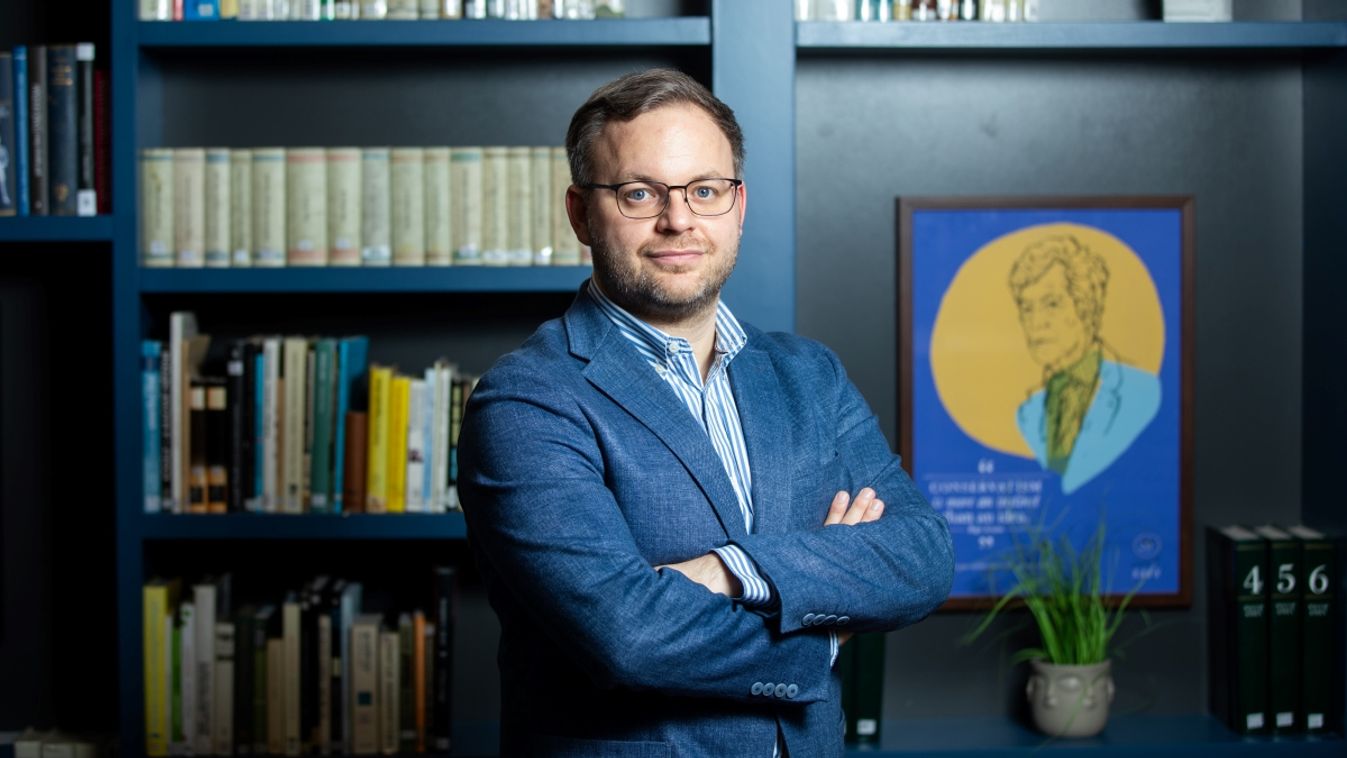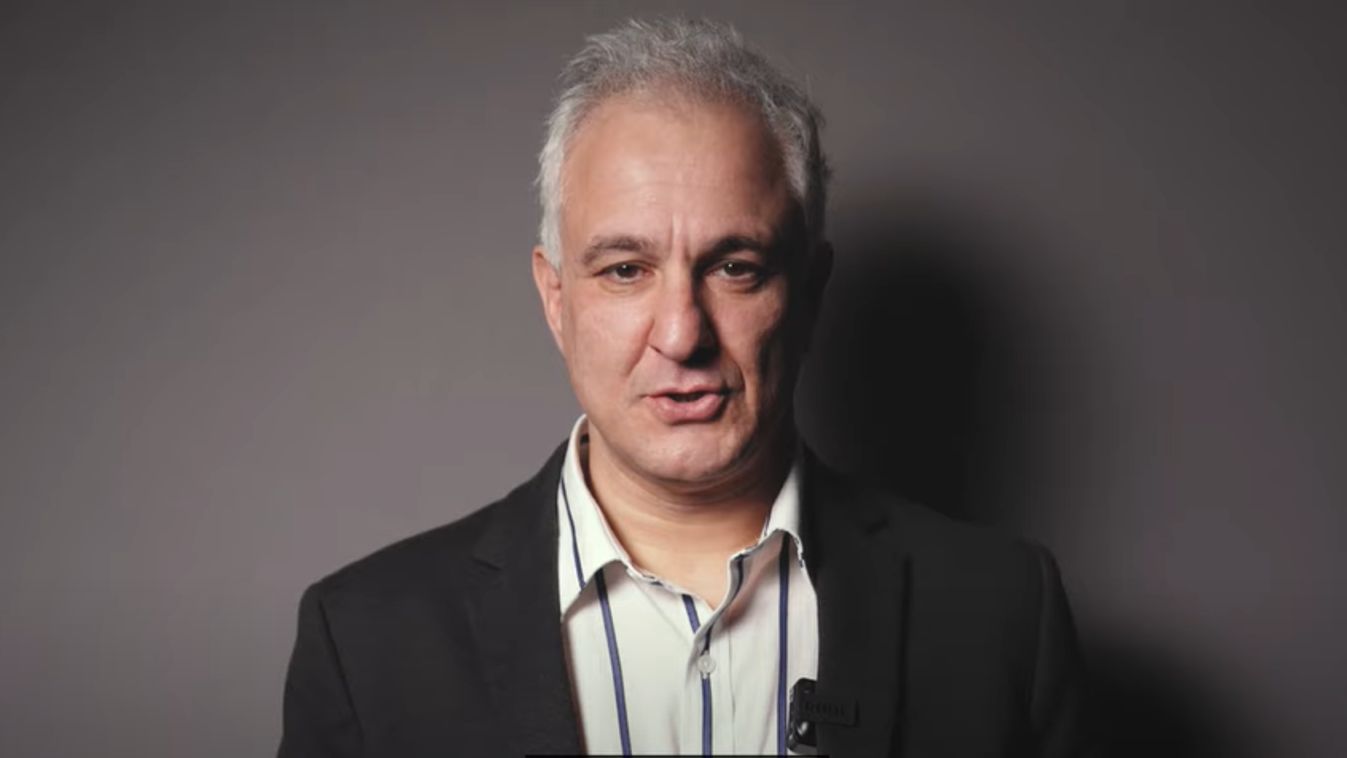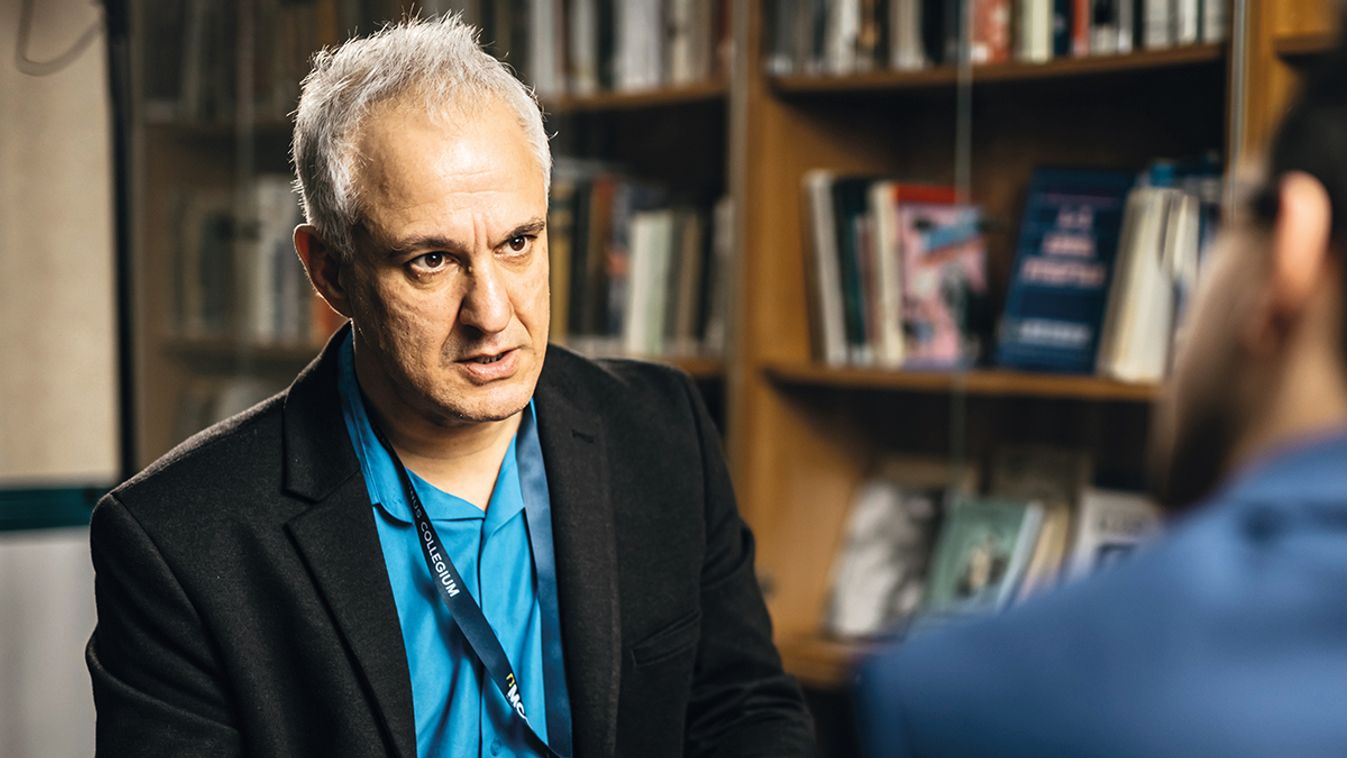
„I noticed that total madness had consumed the university” – Peter Boghossian, critic of fake science, for Mandiner
He made grievance scholars look like fools by rewriting Mein Kampf into feminist text, conducted a fake study on rape culture in dog parks, and is now engaged in an all-out fight against the far-left autocracy that dominates American universities, where his career is now over. We talked to philosopher Peter Boghossian, a vocal atheist and classical liberal, who offered some advice to PM Viktor Orbán in his interview with us.
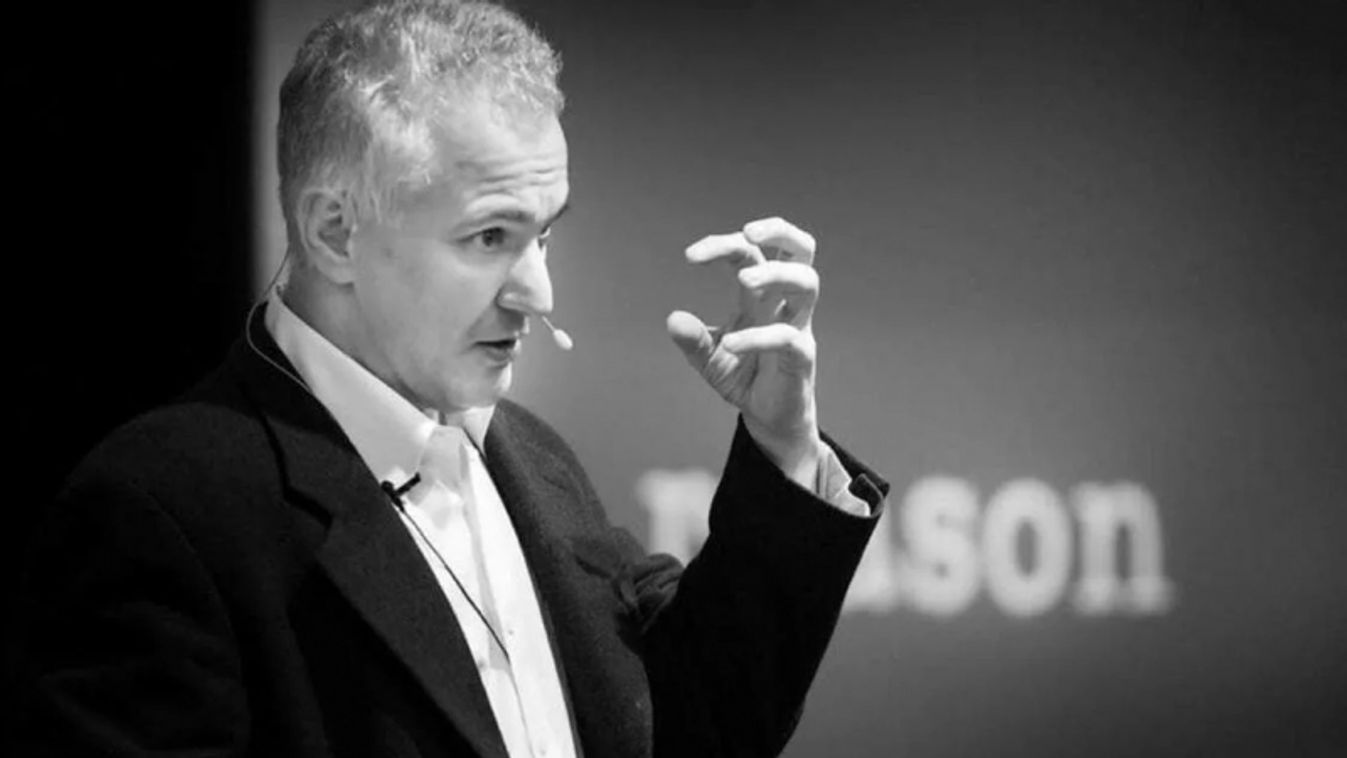
For those of our readers who don’t know: what is grievance studies? Who are you, what did you do, why did you do it, and what did you achieve?
I noticed that total madness had consumed the university—it was based around race, gender and sexual orientation. It came overnight, almost out of nowhere. The more I looked into this ideological takeover, the more I realized something was profoundly wrong. The first step was to identify the problem. My suspicion was that it came from corrupt bodies of scholarship, so I published a hoax paper in 2017 with James Lindsay called The Conceptional Penis as a Social Construct. I thought it was extremely funny, a lot of other people did too, but the university did not. People who adhere to this ideology have no sense of humor. So, when that paper came out, people lost their minds. They were enraged. At that point I totally immersed myself into the literature. I began reading as much as possible, I began studying; then Helen Pluckrose,
or dog rape papers… We published them in leading feminist and gender studies journals. Then those at the university lost their minds again and filed complaints against me instead of saying, “oh geez, maybe there’s a problem with these bodies of literature. Maybe they’re not as rigorous as we thought they were.” The second step was Cynical Theories, which is Helen Pluckrose and James Lindsay’ book, that explains the problem in tremendous detail. It’s sold over 200 thousand copies. And by the way, the New York Times left that off of their bestseller list even though they sold more than enough books, they did that to Jordan Peterson too.
How does politics intersect with grievance studies, or, the way we like to call it, fake science? Did politics create grievance studies or did grievance studies engender woke politics?
So everyone is freaking out that Viktor Orbán has defunded some of the university programs. Let me just say this: the mistake in thinking about this is to think about this in terms of right-left. Here’s a much better way to think about it: let’s say that instead of the left, Mormons completely control the entire university system. All of it. Everywhere you go, there’s Mormons at every level: there are Mormon administrators, there is Mormon faculty, they teach students to be Mormons, they institutionalize the Book of Mormon, they have rules about blaspheming the Book of Mormon… Do you think that would be a problem?
I would.
It’s a huge freaking problem. And it’s an even bigger problem if those people have jobs for life. So what other alternatives would Orbán have? There is no alternative. You have to defund these ideologically driven programs. The people who run and teach in them are ideologues—they’re attempting to indoctrinate people, and he did exactly what he should’ve done. And that’s the thing: you don’t even have to be a conservative to see that. Everybody should be able to see that. It’s a problem when an institution has been ideologically captured. Nobody benefits. I would even argue that the people who have been captured by the ideology don’t benefit.
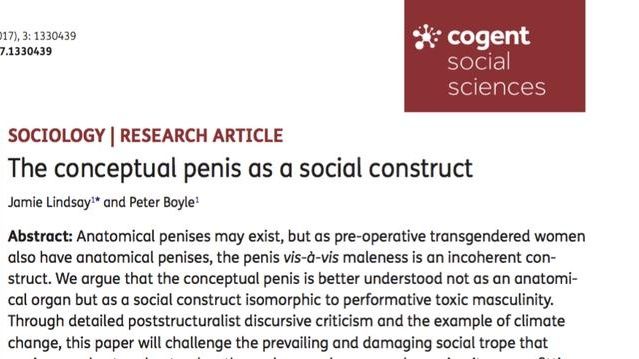
Fake science often makes one think there is such a thing as leftist scholarship or conservative scholarship. Do you agree with these concepts?
No, absolutely not. That’s completely bullshit. The data is the data, whatever the data is. There are certainly policy implications of the interpretation of said data that are right or left or green or libertarian or whatever. The data is just the data. Let’s take a look at global warming: I believe there is sufficient evidence now to show that global warming is anthropogenic. In other words, it’s caused by humans. Let’s say that a large group of reputable scholars study this, it’s been studied thousands of times – that’s just science. What you do about that is certainly political. Do we put a tax on carbon? Do we stop using petroleum-based products? Do we do nothing? All of those things are political, but the data is never political. I want to say one more thing if you don’t mind: let’s say that earth warming is caused by humans. Let’s say that everybody in the university is to the right. Why would anybody on the left trust this study when all the people who produced these studies are on the right?
That’s why you need diversity in academia. Let’s say you have a couple Mormons, a couple Muslims, a couple Christians, a couple conservatives, a couple liberals, a couple far-left maniacs, a couple right-wing lunatics… Let’s say you have everybody onboard, and everybody converges on the opinion that Earth’s warming is caused by humans. How much stronger would that be when the public looks at it? It would be bulletproof. But that’s not the situation. We have the opposite situation.
There are quite a couple of hoops you have to jump through if you want to achieve academic standing in the United States: there is the tenure process, you need to get your place in curricula, you need funding for you research projects… I’ve examined Robin DiAngelo’s and Ibram X. Kendi’s work over the last months, and it struck me as unbelievable that they pass off as scientific achievement so much content that’s just about improving the structural position of activist scholars in academia. How do you think grievance studies jump through these hoops?
The fact of the matter is, in certain fields, you’re never going to publish something that goes against the moral orthodoxy. It’s just not possible. You’re never going to get a piece into a top journal if you question or challenge it. Think about it like this: let’s say that all the journal editors are Mormons, and you want to publish an article that seriously challenges some of their beliefs about Joseph Smith being a prophet, you do the scholarship, you research the evidence. You think that’s more likely or less likely to get published because they are Mormons?
If it’s science, it’s irrelevant, but if it’s fake science, it’s less likely…
True. And the people who control these journals, they’re ideologues.
because if you attempt to publish something that challenges the moral orthodoxy, the likelihood of it getting published in certain fields is almost zero. The less ideological a field, the less true that is. In civil engineering, if you’re talking about building bridges, that’s not really an issue. But if it’s anything in the humanities, particularly in gender studies, it’s a catastrophe. So you’re less likely to get articles accepted. We’re losing the meritocracy in this country, it’s more about race and gender and sexual orientation, especially about race, than it is about merit.

How did all of this come to be? You have to capture these key positions in academia first to then be able to impose your ideologies on the rest of the field.
People hire people who are ideologically similar. The values of the institution change, and the thing to know about all of this is, at root, it’s almost all true. Has there been historical oppression? Yes. Has there been oppression against Black people? Yes. Has there been oppression against gay people? Yes. Has there been oppression against women? Yes. There is kernel of truth that this edifice is resting on.
They take what’s true and then they build an infrastructure around that in terms of journals, faculty, administrators… And then, for example, you deny promotion and tenure to people, even people with utterly impeccable credentials. There are ways to fix the problem, I think Orbán has one totally reasonable solution. If I were him, the moment I saw that, I’d defund the whole program. And if they don’t like it, I’d tell them to piss off. You have to have a hard stance with this ideology.
Hanging on to this topic of the intersection of fake science with politics: do you see any connection between last year’s BLM riots and the scientific achievements of the great field called critical race theory?
That was the most difficult problem we had in 2018. I’d point out a problem, and people would say yeah, of course this is a problem, but it’s just a few crazy people in fringe departments in the academy, what’s the big deal? As much as I’ve tried to explain this to people, even smart people, in 2018-2019, it’s only now that people understand because they see it. Jordan Peterson talks about how in 4-5 years after a student graduates, they go into the workforce, they go into professional life, and they take with them the madness, trigger warnings, safe spaces, microagressions in particular, that they’ve learned in the academy. And the woke far-left has really done an extraordinary job of indoctrinating people, to paraphrase Friedrich Nietzsche, „right under the nose of everybody else”. Very few people are actually sounding the alarm to this because they thought it was just a few nutjobs in fringe academic departments. But all of this leaked out of the academy. If I were Orbán, I’d go after colleges of education. I’m now producing a 12-part video series
Teachers who graduate from ed schools then go back into the K-12 system to begin indoctrinating children. I’d defund all of those programs, every single one of them. Everybody has the academic freedom to do anything they want. You want to research the fact that the moon is made of green cheese, that’s terrific. Nobody’s telling anybody they can’t research anything. They can research literally anything they want, they can investigate anything they want, they can write about anything they want. But not with taxpayer’s money.
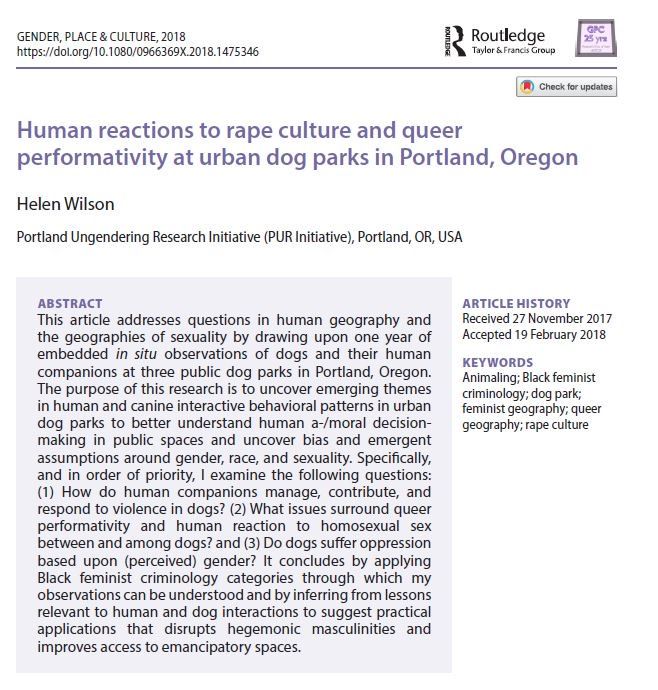
Let’s get back to your person: there is an IRB investigation against you, and the student newspaper at your university, PSU Vanguard, ran an anonymous piece written by faculty members on that. I found some parts of that article very interesting. I quote: „Chronic and pathological, unscholarly behavior inside an institution of higher education brings negative publicity to the institution as well as the honest scholars who work there. Worse yet, it jeopardizes the students’ reputations, as their degrees in the process may become devalued.” My question on that note: what is the intrinsic value of a field of study that can be so easily devalued by three rogue scholars over a couple months?
The context is that usually, for a professor to get tenure, you need to publish one paper a year and seven papers over seven years. But even then, you have a PhD in the field and you’ve studied it for at least a decade. We were well on our way to 13 papers over the course of a year when we were discovered by the Wall Street Journal. I would add that
the academics working in these disciplines are driven by ideology and not truth and have little to no scholarly self-reflection or self-honesty. Civil engineers just want to build the best bridges. They don’t want to push an ideology. Not only do these fields have no legitimacy, they are a disgrace and they’re an embarrassment.
How „uncollegial” of you!
I’m saying it because it’s true. Because they can’t defend their ideas, these ideas don’t withstand scrutiny, and instead of being honest about the work and the field and the intellectual rigor within that field, they do almost the exact opposite. Think about it like this: you know the metal detectors you go through when you board a plane. Let’s say you’ve snuck a bomb through one of those, and when you get to the other side, instead of getting on the plane with the bomb, you went up to the TSA people and said, “hey man, I’ve just got a bomb through this detector, and I’m really worried about some maniac getting on the plane with a bomb, I want to show how I got a bomb on the plane.” If I were those guys, I would be like, OMG, thank you so much, because we don’t want a maniac on the plane with a bomb! They should have reacted to us in the same way, I would’ve said thank you so much, because we don’t want the scholarship that we produce to inform public policy negatively. We want to produce the most objective, rigorous scholarship possible, so when politicians make decisions about how we should proceed as a society, they’re doing so on the basis of the best available evidence. But that’s not what they did.
It’s great that you’re touching on the point of not being able to defend their ideas, because there’s another fascinating passage of that letter: „We have opted to communicate our concerns through a collective identity rather than individually. (...) None of us wish to contend with threats of death and assault from online trolls.” If I’ve read Cynical Theories correctly, Pluckrose and Lindsay described something along the lines of groupthink. We know for a fact that CRT makes debate impossible by pathologizing dissent, anonymizing positions as much as possible, and hiding specifics behind structures. Don’t declarations like this one prove the points you’re making about fake science?
This is extremely important. Portland State University passed a faculty resolution, 2021/03.01.E.4 (link), and you can look at that, this is public information, that was disguised in the verbiage of free speech, but
Why would they prevent criticism of critical race theory? Civil engineers don’t say, we’re instutionalizing a rule so you can’t criticize how we build bridges! That’s insane! One of my colleagues published a hit piece on me (link) in the Chronicle of Higher Education, here’s my response (link). They’re trying to claim that criticism of ideas is harassment, but it’s not only not harassment – that’s my job, to criticize bad ideas!
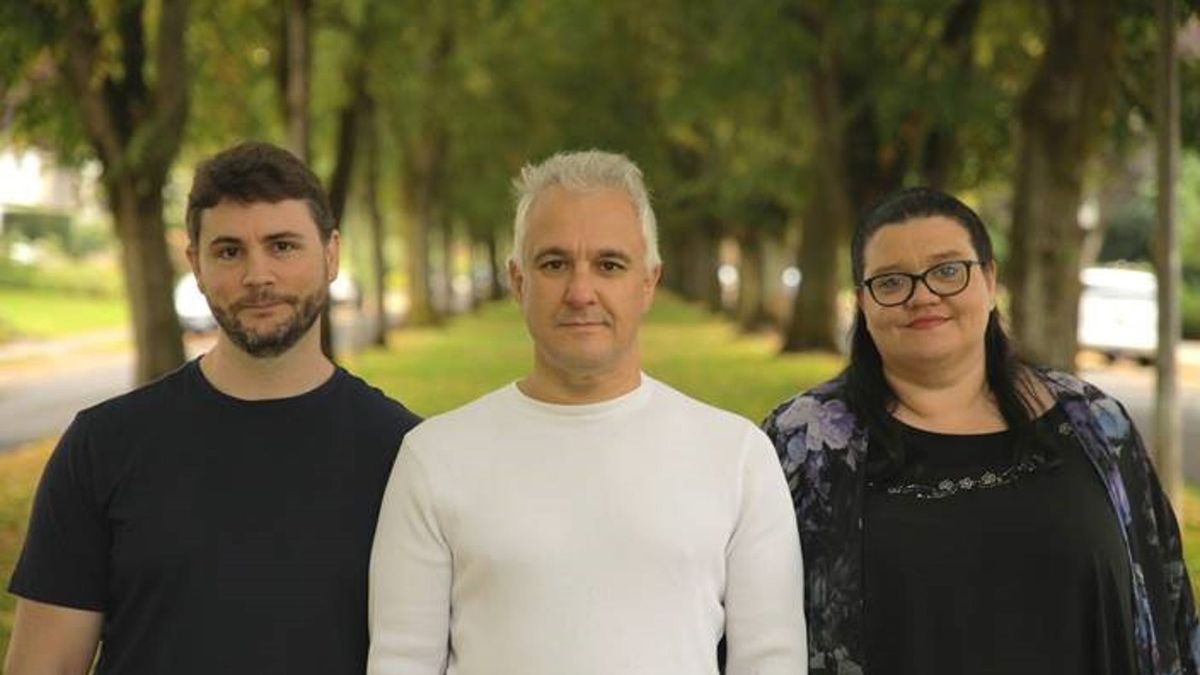
You’ve been teaching a left-leaning student body at Portland State, so you have some experience of a student body receiving grievance studies. Tell me a bit of that student experience! What makes them take these courses? Do they like them? What do they end up using them for?
I really like the students and yet they don’t know any better. They’re trapped. Everyone they look up to and trust, and I mean everyone except two of us at Portland State who are openly opposed to this censorious and illiberal ideology, myself and Bruce Gilley. I don’t know how many are opposed to it but afraid to speak out. I genuinely believe, as Aristotle did, that „all people desire to know”. And I think that’s one of the reasons why podcasts like Joe Rogan’s are so popular: because people do want to have these conversations, they do want to see the other side of the issue, they do want to engage ideas, and they’re not getting it at universities. In fact, they’re getting exactly the opposite.
So I did a reverse Q&A (link) at Portland State. Instead of me standing on the stage telling people stuff, I sat in the audience and I listened to people’s experiences at Portland State about social justice. And students are terrified to speak openly and honestly, they’re afraid of retribution. This isn’t me saying it, that’s the students saying this. (video) This ideology is simply not sustainable.
Nobody wants to walk around petrified that they’re going to be canceled. Nobody wants to live like that. And yet we all find ourselves living like this.
To us, the expiration date looked like it was 40 years…
I’ll give it three.
So be it! Most of the media coverage about grievance studies compares it to the Sokal affair, but there was also something else in between – Prof. Victor Davis Hanson of the University of California speaking out against Chicano-Latino studies, which is basically a way to keep Latino migrants from integrating into society. His idea for a remedy was: teach them the classics, teach them European languages, teach them philosophy, Greeks, Romans, whatever, and then their knowledge will lift them out of the economic nightmares they find themselves in…
Did that work?
Well, it didn’t seem to really penetrate the Anglo-Saxon academic establishment… So: what’s the way out? How do you make people immune to fake science, how do you purge the university and keep them out of it?
You have to change the moral mind. It’s not about evidence. People don’t change their minds based on evidence. The work that needs to be done is teaching people how to change people’s moral minds. And when you change their moral minds, their rational mind will follow. As the psychologist Jonathan Haidt wrote, „morality binds and blinds”. People don’t look at the evidence and form their moral beliefs. They form their moral beliefs and then they look at the evidence. The solution to this problem is both extraordinarily complicated and quite simple. The extraordinarily complicated part is thinking about grand strategies for how to help people value the right things. Now that might sound condescending, but you have to ask yourself: is it possible for people to value the wrong things? And anybody who sincerely thinks about this question for more than five seconds will come up with the answer „yes”. If you smoke unfiltered cigarettes all day, you’re valuing the wrong thing. And the simple part is, you have to prohibit some things. The evolutionary psychologist Gad Saad, a good friend of mine, said to me once: let’s take the country of Vietnam. Let’s say that tomorrow, the country of Vietnam will be overcome with genocidal hatred of Jews. Every single person in Vietnam wants to kill Jews, build concentration camps, etc. Would it then be rational for the United States to limit immigration from Vietnam? Of course it would be, right? The same goes for grievance studies.
Összesen 0 komment

Megkóstolta a macskaürülékből készült kávét Jákob Zoltán - videó
origo.hu
Drámai bejelentés: már III. Károly király temetésére készülnek
origo.hu
Ezt nézd! Tóth Gabi megmutatta új álomkonyháját
mindmegette.hu
A ferihegyi repülőtér visszavásárlása csak a kezdet: még százmilliárdokat költenek rá – ezek a tervek
vg.hu
Házasság első látásra: ezért nem sajnálják az elhagyott csupa szív Gerit az olvasóink
metropol.hu
Ma 90 esztendős a Bud Spencer- és Terence Hill-filmek örökös „fogköpője”
magyarnemzet.hu
Fürdőruhában mutatta meg magát Iszak Eszter - kép
origo.hu
Valóban tilos füvet nyírni hétvégén? Itt az igazság!
mindmegette.hu
Játssz és nyerj páros belépőt a Magyarország-Kanada jégkorongmeccsre (hirdetés)
jegkorongjatek.origo.hu
Saját állításuk szerint bevették Novobahmutivkát az oroszok
mandiner.hu
Alu paratha, a burgonyával töltött boldogságlepény -receptvideó ( hirdetés)
videa.hu


